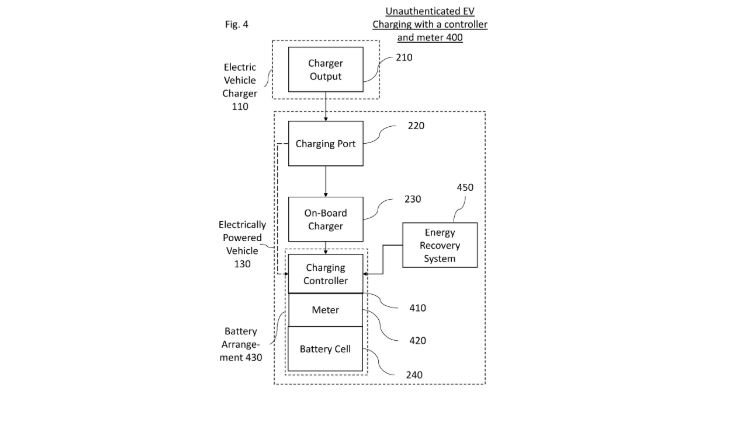A recent patent, filed by inventor Julian Menashe, introduces a novel system designed to prevent unauthorized charging of electric vehicle batteries.
This system, relying on a blend of software and hardware components, aims to ensure that only authenticated and approved charging sources can induce charging, thereby protecting vehicle batteries from the risks associated with unauthorized charging.
The patented system is structured to operate with both software and hardware, or a distributed network of hardware, to control the charging process of electric vehicles. The system’s core functionality lies in its ability to enable or disable battery charging based on whether the charging source is authenticated. Authentication involves signals either from the charging source itself or from a remote system that verifies the legitimacy of the charging process. This ensures that charging occurs only when it has been expressly authorized, thereby safeguarding both the vehicle and the owner’s finances.
One of the significant aspects of this innovation is its flexibility regarding different charging scenarios. The system permits charging through methods that do not require an external charging source to be authenticated. For instance, it supports charging via regenerative braking, where energy generated from braking is converted back into electricity for the battery. Additionally, hybrid vehicles using an internal combustion engine or a hydrogen fuel cell for charging are also accommodated by the system. These methods allow for continuous and efficient vehicle operation without reliance on external charging sources.
Despite the stringent controls on unauthorized charging, the system does provide a solution for situations where unauthenticated charging might occur as an exception. In such cases, the system mandates that details of the charging event be recorded. This record-keeping enables the accumulation of data necessary to calculate costs associated with the unauthorized charge, ensuring that payment of charges and any applicable fuel duties can occur at a later date. This feature is vital for maintaining accountability and protecting against financial loss.
Stay updated on the latest in energy! Follow us on LinkedIn, Facebook, and X for real-time news and insights. Don’t miss out on exclusive interviews and webinars—subscribe to our YouTube channel today! Join our community and be part of the conversation shaping the future of energy.
